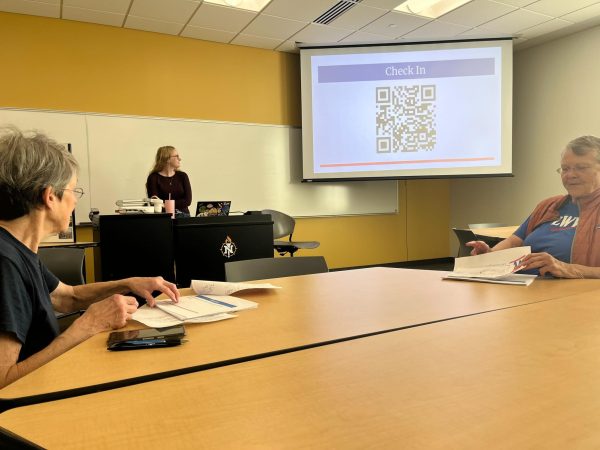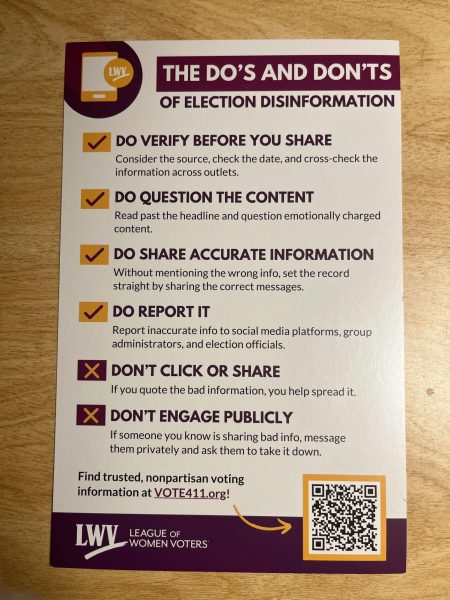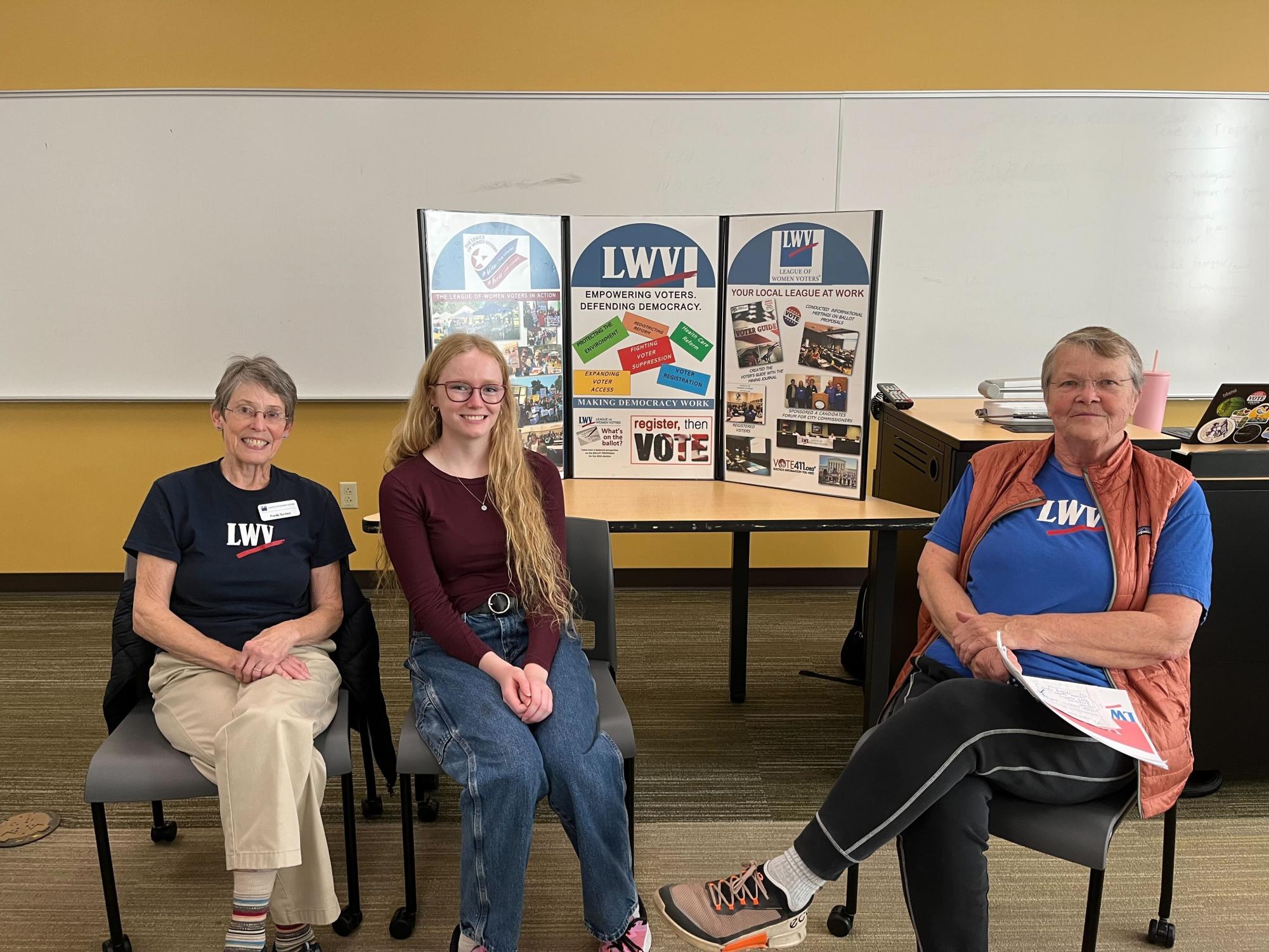On Oct. 21, the Student Fellowship Program teamed up with League of Women Voters (LWV) members to host Voting 101. The LWV is a non-partisan league, with its main goal being to equip voters with accurate information so they can make informed decisions.
Voting 101 taught students about voting and its importance, especially since some students may lack guidance on how to vote. Specifically for first-time voters, the process can seem overwhelming.
“If you’re a college student not from the area, and your parents aren’t around to guide you on how to vote, you don’t really know what’s going on,” NMU student and LWV Libby Myren said. “So that was the idea behind this event, to give college students more information about voting, how to vote and where to get the necessary information before you go vote.”
Pri Burnham, a member of LWV, and Sue Holliday, an NMU alumni and LWV member, gathered the participants in a roundtable discussion.

As a way to show the importance of voting, Burnham and Holliday urged the participants to stand up and play the ‘Voting Game.’ Burnham explained that all the people standing represented those eligible to vote. Then she told three of the participants to sit down. The people who were left standing represented those who would actually vote. Then Burnham sat down to show that she was half of the people who would not vote. The last person standing was Myren.
“When we do it at the high school, it’s amazing to watch the faces when they see who’s left standing,” Burnham said. “You can tell that it’s dawning on them that ‘I don’t want this person to be making decisions for me about anything.’”
The game was played to oppose the idea that one’s vote is not important, or that it gets lost among all the others.
“If you ever think that your vote doesn’t matter, it absolutely does,” Burnham said. “Your vote is your voice.”
The next thing Burnham and Holliday focused on was misinformation and disinformation, and how they can affect the choices a voter makes. Misinformation is false information that is spread inadvertently while disinformation is false information spread intentionally to mislead people.
They emphasized the need to combat this through learning whether the source of information is trustworthy or not.
“It’s hard for people, especially in a vulnerable time, to know what sources to trust. So hopefully, if people are skeptical before an emergency happens, they can filter out the bad misinformation,” Burnham said.
One of the fliers they gave out focused on “The Do’s and Don’ts of Election Disinformation,” which gave tips on what to do when coming across disinformation online regarding voting.

The LWV members also introduced Vote411, the LWV’s nonpartisan guide. With this guide, one can register to vote, check their registration and find out what is on their ballot. This can be useful for voters because it contains much of the information they need all in one place.








